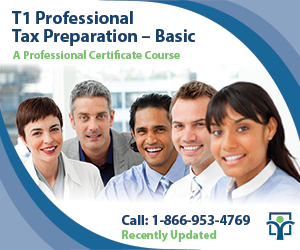Last updated: March 15 2016
Six Tax Concepts for Newcomers To Canada

Tax filing time is confusing for most Canadians, but for newcomers it can be completely bewildering. If you have the opportunity to help with this most important financial document of the year for many families, including new immigrants, consider broaching the following six concepts as a conversation-starter in your role as financial educator.
- In Canada Taxpayers File as Individuals. Understanding Canada’s “progressive tax system” (the more you earn, the more you pay) and its effects on family wealth provides for a multitude of planning opportunities. First, everyone benefits from the Basic Personal Amount and tax brackets, that determine taxes payable when taxable incomes rise. For these reasons, family income splitting, when possible, provides better results, after tax. However, be sure to discuss the Attribution Rules, which provide restrictions on what income and capital may be split.
- Family Income Counts for Credits, Too. Newcomers need to grasp that rising incomes will affect eligibility for refundable tax credits, like the Canada Child Tax Benefit or the GST/HST Credit. Here “family net income” is used to determine eligibility. Common law unions as well as married couples must share the information about each person’s net income to comply.
- Really Dig for Tax Deductions and Credits that Reduce Your Income. Know that most refundable tax credits are determined by adding family net income – the income of both spouses – together, but that this figure can be reduced by common tax deductions like an RRSP contribution, union and professional dues, child care, investment carrying charges and moving expenses. Really digging for every deduction you are entitled to makes a big difference in refundable and non-refundable tax credits the family will qualify for.
- Know Marginal Tax Rates on Different Income Sources. Not all income sources are taxed alike. Ordinary income from employment or pensions, interest, dividends and capital gains all affect different tax rates. When you know your marginal tax rate on the next dollars you earn, you can make better choices about planning your income sources and choose tax-preferred investments to reduce the overall tax rate you’ll pay on both income and capital. The result – more money for you over the long run! Newcomers will appreciate help understanding their options.
- File and Pay on Time. Sage counsel includes the following: Always be sure to file your return before midnight April 30 (this year that falls on a weekend so the deadline is May 2) to avoid late filing penalties. Then if you owe, pay the bill promptly to avoid and expensive interest charges. Do know that you can voluntarily comply with the law to correct errors or omissions you may have made? If you do so before CRA finds you negligent, you will avoid penalties and additional interest charges and, in severe cases of fraud, jail.
- Record Retention is for Six Years. Keep your books and records to justify the numbers on your tax returns for a minimum retention period of six years after the end of the taxation year to which those records relate and make sure they are in good order and that you can find them if CRA wants to see them.
 |
Taxpayers in Canada have appeal rights and for these reasons must act promptly, based on the date on their Notice of Assessment. Newcomers must also report their official date of entry and determine the fair market value of their taxable assets, held worldwide, at that time.
A Tax Services Specialist can help with required appraisals, the application for refundable tax credits and special tax provisions, like the proration of certain tax credits on the T1 return.
Evelyn Jacks is a best-selling Canadian author of 52 books including her latest, Family Tax Essentials. Evelyn is the Founder and President of Knowledge Bureau, a national educational institute. To learn more about professional tax preparation and tax-efficient wealth management, see www.knowledgebureau.com.





